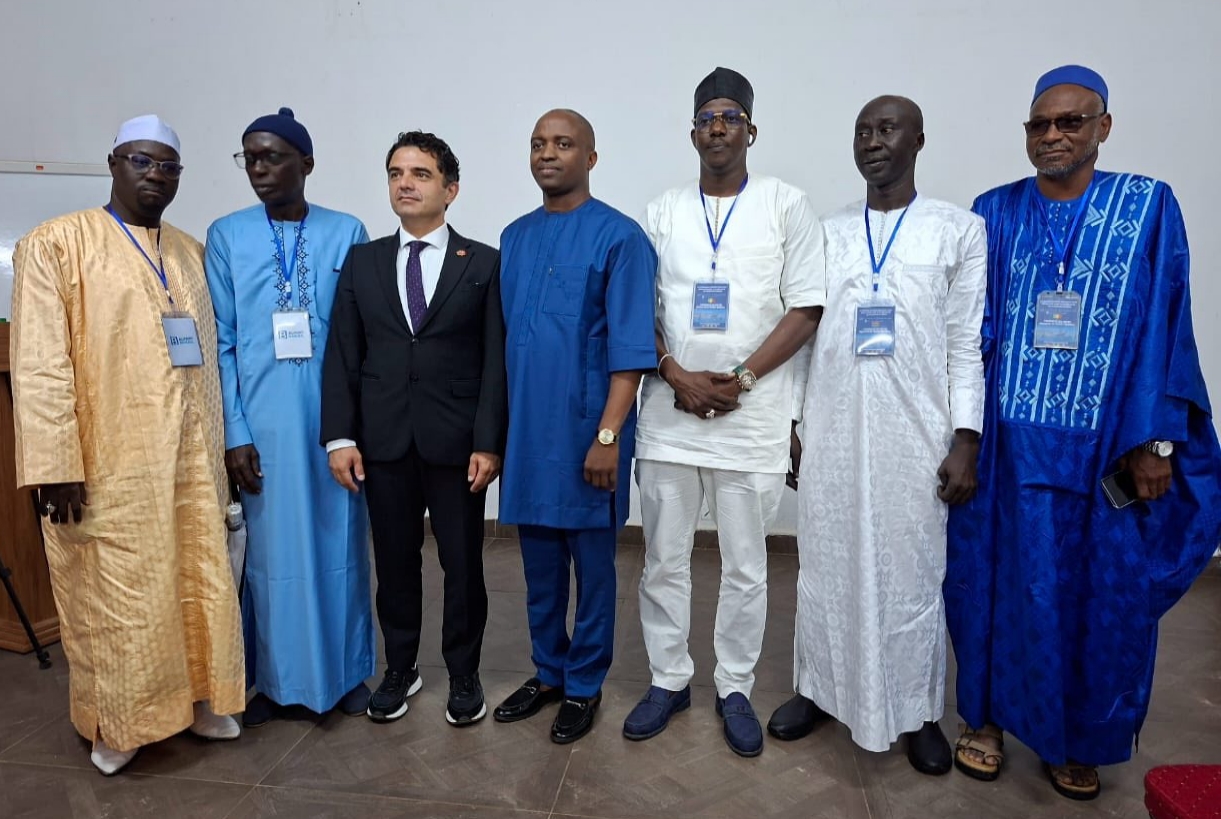Gambiaj.com – (Ziguinchor, Senegal) – Transport and trade unions, as well as economic operators from The Gambia, Senegal, Guinea-Bissau, and Mali have agreed on a groundbreaking framework to tackle rampant harassment, illegal fees, and bureaucratic delays at border crossings—a move hailed as a game changer for cross-border trade and regional integration.
Meeting in Ziguinchor on 30 August 2025, the stakeholders are key players from The Gambia, Senegal, Mali, Guinea Bissau, and Guinea Conakry – including shippers, customs, port authorities, and security officials.
Together, they signed an MOU to establish a Transport Observatory – a game-changer for monitoring trade protocols and ensuring smoother, more efficient cargo movement with fewer border delays and bottlenecks.
It’s a unified framework that will establish observatory committees at border posts. These committees will process official transactions between drivers, truckers, and customs officers, thereby eliminating direct contact that has fueled bribery and extortion for years.
“If drivers and transporters are no longer harassed, populations will access products more easily, which will improve their daily lives,” said El Hadj Ousseynou Karamba Goudiaby, president of the Senegalese Road Transport Union and coordinator of the initiative.
He stressed that harassment persists even when drivers have the proper documents, making the new framework essential for restoring trust and transparency.
Gambian Leadership in the Reform
The Gambian delegation played a pivotal role in shaping the framework. Ousman Jobarteh, Director General of the Gambia Ports Authority (ALPORT), emphasized that given The Gambia’s geography—almost entirely surrounded by Senegal—facilitating cross-border flows of goods is a national necessity.
“This observatory will monitor compliance with ECOWAS and African Union protocols on free movement. The problems operators face today directly translate into higher costs for consumers. By institutionalizing this process, we aim to reduce transport costs and protect populations,” Jobarteh told reporters in fluent French.
The Gambian side was also represented by General Transport Union President Omar Ceesay, who underscored the shared responsibility of unions, drivers, and state agencies in enforcing the new system.
Senegalese Partners on the Same Page
The Senegalese transport union and syndicates echoed Gambian concerns, openly acknowledging that harassment and illegal charges occur on both sides of the border.
Goudiaby admitted that Senegalese drivers also face the same abuses that Gambian, Malian, and Bissau-Guinean truckers endure, stressing that the solution lies in collective action.
“We always blame the states, but we drivers must also refuse to cooperate with corrupt practices. If all actors respect the agreed norms, everyone will benefit,” Goudiaby declared.
He also called on the Senegalese Ministry of Transport to urgently rehabilitate the Selety–Bignona road, which is riddled with potholes that further burden cross-border trade.
A Turning Point for Regional Trade
The Ziguinchor conclave marks the first time that transport unions, economic operators, and port authorities from the four countries have formally aligned on both the diagnosis of the problem and the mechanism for its solution.
Unlike previous efforts that relied solely on state-level commitments, this framework is driven by operators themselves—those directly engaged in cross-border transport and trade.
Stakeholders believe this model will finally bridge the gap between regional treaties and their practical enforcement on the ground. By institutionalizing procedures and monitoring compliance, the initiative is expected to curb corruption, reduce costs, and improve the availability of goods across borders.
“The difference this time,” Jobarteh stressed, “is that operators themselves will ensure the implementation of these texts, not just governments.”
With transport unions and port authorities from The Gambia and Senegal firmly aligned, and Mali and Guinea-Bissau fully on board, the initiative could set a precedent for the wider ECOWAS region in dismantling one of the biggest barriers to trade: the everyday harassment of drivers and truckers.










